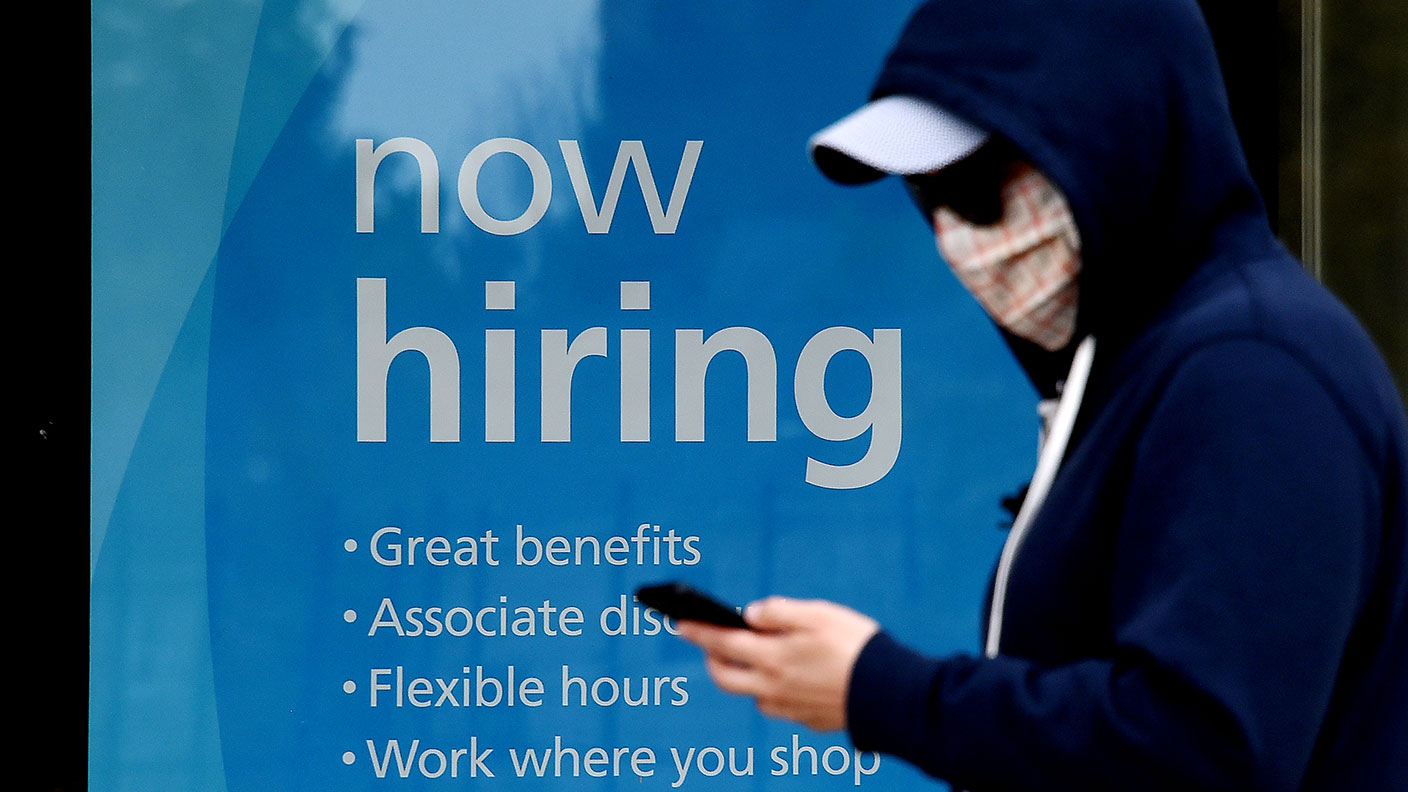Why the Conservative victory is good news for investors
The Conservatives' election victory is a big deal, says John Stepek. Markets have bounced and the pound has surged. Here's what it all means for the economy, and for your money.

Get the latest financial news, insights and expert analysis from our award-winning MoneyWeek team, to help you understand what really matters when it comes to your finances.
You are now subscribed
Your newsletter sign-up was successful
Want to add more newsletters?

See also: Tax calculator how the Conservatives' tax proposals affect you
That's it. The votes are in. I can't imagine I'm breaking any news here by telling you that we're looking at a big victory for the Conservative party. Prime minister Boris Johnson now has a very solid Conservative majority in the House of Commons. So what does it mean for your money?
This election is a big deal
It's a pretty big deal. The vast majority of the messing around we've experienced in the last three years since the vote on Brexit has been down to two things: the government of the day has had a very slim majority (or none at all), and it has been completely divided internally.
Try 6 free issues of MoneyWeek today
Get unparalleled financial insight, analysis and expert opinion you can profit from.

Sign up to Money Morning
Don't miss the latest investment and personal finances news, market analysis, plus money-saving tips with our free twice-daily newsletter
Don't miss the latest investment and personal finances news, market analysis, plus money-saving tips with our free twice-daily newsletter
Now the party in power is united internally the majority of the most committed "remain" Conservatives were ejected before the election. And it's no longer reliant on cobbling together coalitions of the unwilling to get anything done in parliament.
So what does that mean?
Well, first of all, it means that Johnson's version of Brexit will begin very shortly. I say "begin", because between leaving the EU and reaching our final (at least for a prolonged period of time) trading relationship with it, we'll have a lot of discussion.
But Johnson's deal the one that markets were broadly happy with before the election was called is now the way we're going to go.
That's good news for the pound. Investors had reached the point where they'd come to terms with Britain leaving in some way. It's not a "cliff-edge" Brexit, which they can live with. And now there can't be any domestic disruption to prevent it yet again.
So there's some certainty there.
On top of that, British voters have made it pretty clear that they're not keen to vote for re-nationalisation, rampant levels of spending, and a government hostile to property rights and entrepreneurship. Again, markets like that because markets are basically founded on the latter two values being mostly shared.
As a result of all this, the pound has surged. Will that continue? There's many a slip betwixt cup and lip, and there's a lot of talking on trade still to do. So your guess is as good as mine in terms of where the rally stalls and when and why.
But we can certainly now be pretty sure that the pound's nadir for this cycle is in the past. Particularly if the dollar starts to weaken, too (although that's another story).
Money could head back to the UK
What about the wider economy?
A rising pound isn't normally great for the market simply because we've had this correlation of "weak currency = rising stocks", and vice versa for a while. But this morning, the more domestically-focused FTSE 250 is up sharply about 4% as I type.
And looking down the All Share, the biggest winners are the sorts of stocks that would have been hit hard by a Labour victory.
The utilities, which have suffered a "nationalisation" discount, are on the up SSE has gained about 10%. The banks have made gains, particularly the challenger banks. The housebuilders have surged too most of that sector is up in the region of 10% this morning.
But the relief rally is not restricted to those stocks that would have been in the sights of a Jeremy Corbyn-led government. Even the perpetual disappointment that is Marks & Spencer is up 8.5%.
In short, it's a good day to have money in UK assets (which I'm sure you do, given that you probably live here and have hopefully paid attention to us going on about it over the past year).
And given how widely disliked the UK has been on a global basis, I suspect the rally has longer-term legs. Most fund managers claim to be "underweight" the UK (in other words, they have less money in the UK than their benchmarks would indicate). If they decide to start rectifying that now, then it's more good news for UK assets.
This could be very good news for the UK economy
Of course there are still a lot of political issues to consider. In Scotland in particular, the SNP hasn't quite won the clean sweep it expected when the exit poll arrived last night. But it's still done a lot better than it did at the last election. That means there will be more pressure for a second referendum on independence.
Chances are that won't peak until the 2021 Holyrood election though. And it's worth noting that support for independence is nowhere near as strong as the yellow flood across the electoral map of Scotland might indicate.
The SNP won 45% of the vote. The Conservatives still won 25%. And a significant minority of SNP voters are also pro-leave so the idea that it's a purely anti-Brexit party is mistaken.
I'm not saying for a minute that Scottish independence is an impossibility. But it's a steeper hill to climb than many commentators seem to think.
Meanwhile, the Tories have to make sure they don't throw away the goodwill of voters in seats that they've never won before in their history. That will probably mean a lot of focus on the north of England in the next Budget, which will presumably come early in the new year.
But the point is, Johnson has a lot of freedom and a lot of support to get on with his priorities. And while he's not as much of a free spender as Corbyn might have been, he's not really someone who strikes me as naturally austere either.
The UK economy beneath the overlay of political chaos has been doing fine. A burst of stimulus in all the right places could really add a decent kicker on top.
Overall, if you're an investor, this is probably the best outcome you could have hoped for, regardless of your other political convictions.
We'll have a lot more on this in the next issue of MoneyWeek magazine, and Merryn and I will be recording a podcast on it later. If you're not already a subscriber to the mag, get your first 12 issues free here now.
Get the latest financial news, insights and expert analysis from our award-winning MoneyWeek team, to help you understand what really matters when it comes to your finances.

-
 Financial education: how to teach children about money
Financial education: how to teach children about moneyFinancial education was added to the national curriculum more than a decade ago, but it doesn’t seem to have done much good. It’s time to take back control
-
 Investing in Taiwan: profit from the rise of Asia’s Silicon Valley
Investing in Taiwan: profit from the rise of Asia’s Silicon ValleyTaiwan has become a technology manufacturing powerhouse. Smart investors should buy in now, says Matthew Partridge
-
 Is the US in recession and does it matter?
Is the US in recession and does it matter?Analysis There's a heated debate over whether the US is in recession or not. But why does it matter? John Stepek explains
-
 Has the chancellor done enough to save the UK from recession?
Has the chancellor done enough to save the UK from recession?Analysis UK Chancellor Rishi Sunak announced a new package last week to ease the cost of living crisis. John Stepek explains whether the risk of a UK recession still remains.
-
 Is the UK too open to overseas takeovers?
Is the UK too open to overseas takeovers?Analysis Data shows that the UK is more open to overseas takeovers than other major markets. John Stepek asks: should investors care?
-
 How to manage your money as inflation just keeps rising
How to manage your money as inflation just keeps risingAnalysis Uk inflation is at a 30-year high – and it won't be falling any time soon. So what can you do? John Stepek explains how to manage your money to combat rising prices.
-
 Inflation is going to stay even higher for even longer
Inflation is going to stay even higher for even longerAnalysis Commodity prices – everything from energy to food – are going through the roof. And that’s not likely to end any time soon, says John Stepek. Here's what that means for how you invest.
-
 Inflation is incredibly inconvenient, as we’re all about to learn
Inflation is incredibly inconvenient, as we’re all about to learnAnalysis Inflation doesn't just eat into your wealth, it eats into your time – and can be devastating for those on the lowest incomes. And it's not going away any time soon, says John Stepek. Here's how to invest.
-
 The cost of living crisis is global – US inflation just hit another 40-year high
The cost of living crisis is global – US inflation just hit another 40-year highAnalysis With US inflation running at 7.5%, it’s clear that the cost of living crisis is not confined to the UK. John Stepek looks at the likely reaction from governments and central banks, and what it means for you.
-
 The strong US jobs report is good news for the economy, but not so much for markets
The strong US jobs report is good news for the economy, but not so much for marketsAnalysis January's US jobs report came in much stronger than anyone was expecting, with 467,000 new jobs added to the economy. But things might not be quite as rosy as they seem, says John Stepek. Here's why.